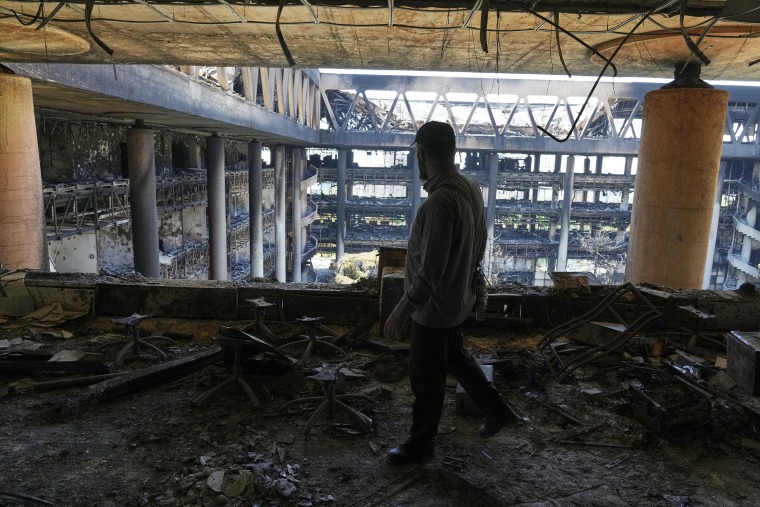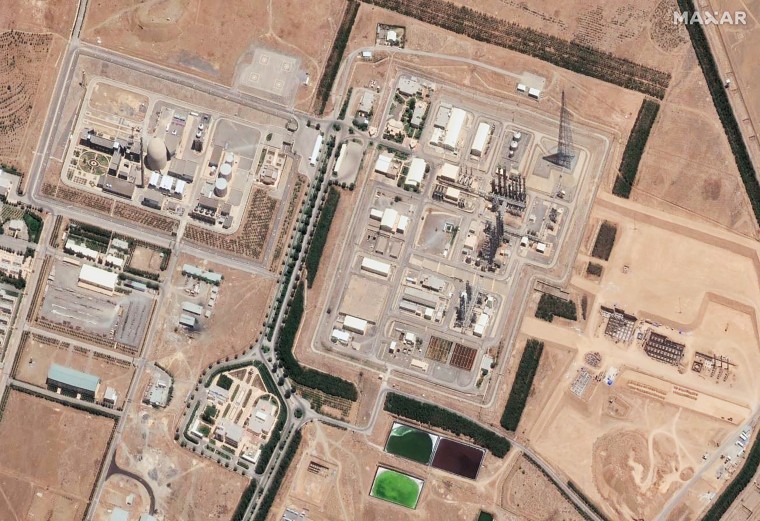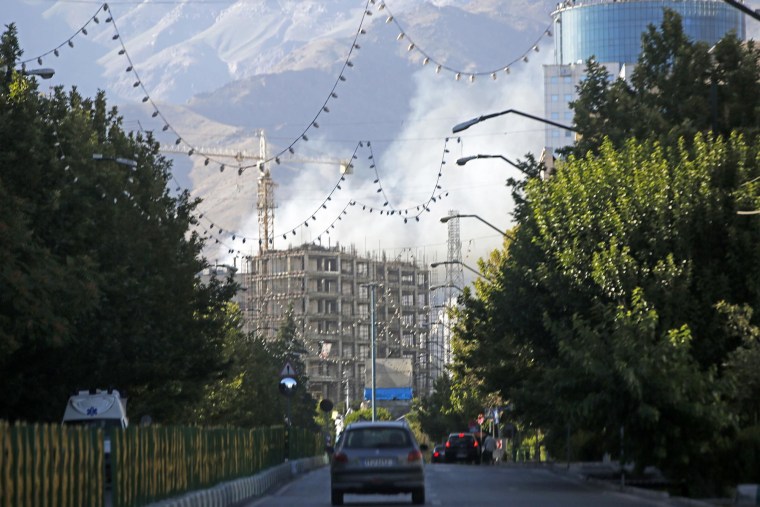Entire neighborhoods in Tehran are emptying out as Israel and Iran exchange barrages of missile and drone strikes. Those who remain in Iran’s capital are mostly staying indoors, residents told NBC News.
“Most people in my neighborhood have left their homes; shops are closed because no one wants to be in the streets. People are scared,” Sima, who lives in the wealthy district of Sa’adat Abad, in northern Tehran, told NBC News via WhatsApp.
Israeli strikes have killed at least 639 people in Iran during the weeklong conflict, The Associated Press reported. A spokesperson for the Iranian health ministry said Thursday that more than 2,500 people have been wounded. Twenty-four people in Israel have been killed by Iranian fire.
President Donald Trump said Tuesday that residents of Tehran, a city of 10 million people, should evacuate immediately, but Sima, 35, is hopeful and has decided she’s not leaving.

“I believe the Israeli army just wants to destroy the nuclear sites,” said Sima, who asked that her last name not be used for her safety. “They don’t want to kill us.”
Last Friday, Israel launched a military operation against Iran, targeting nuclear sites, high-level military and government officials and nuclear scientists. Israel said its actions were based on intelligence that Iran was close to developing a nuclear weapon, which Iran denies.
The U.S. assessment of Iran’s nuclear program hadn’t changed since March, when National Intelligence Director Tulsi Gabbard told lawmakers that while Iran has large amounts of enriched uranium, it hasn’t made a decision to rush toward building an atomic bomb, according to the top Democrat on the Senate Intelligence Committee and a source with knowledge of the matter.
In 2022, Sima took part in anti-government protests sparked by the killing of Mahsa Amini, 22, in police custody. Iranian morality police had detained Amini, a Kurdish Iranian woman, for not wearing the hijab properly. A United Nations fact-finding mission said she was brutally beaten to death.
Thousands of people took to the streets, with women burning their headscarves in defiance. The protests were met by a heavy crackdown: Hundreds were killed, thousands were arrested, and dozens were sentenced to death.

Eventually, the demonstrations died down, but now Sima hopes the Israeli strikes could weaken the regime and allow people to topple it.
“We lost most of our friends in the street protests,” Sima said. “But now we are hopeful to find a way to break this regime. I think this is our time. At night, when people are watching the attacks and the bombings, they shout from their windows: ‘Down with the dictator,’ ‘We take our country back.’”
But others don’t think this is the time to talk about regime change.
A resident of Karaj, a large suburb west of Tehran, believes that although the vast majority of Iranians don’t support the regime, many will rally in unity at the prospect of a war.
NBC News agreed not to name him as he feared retaliation for speaking to international media. Some of his family members were imprisoned in the past for their political views.
The people “don’t like foreign interventions and won’t allow that,” he says. “I will defend my country no matter what, no matter what criticism is going towards the government or the officials. Those who say ‘we’re against the government’ and they’re happy to be attacked are a minority — at least at this time of the war. And many people call them traitors.”
Iranians want peace, he said.
He had been hopeful that the negotiations with the United States in Oman were going to produce a deal, and Israel’s attack Friday completely blindsided him.

“Everything happened so fast. I didn’t expect that. We heard some fighter jets. We saw some air defense systems shooting objects which were probably drones,” he said. “We are all terrified, and we don’t know what to predict, but we don’t want this war.”
As the first explosions were going off, people started sending panicked messages to their relatives abroad.
Azam Jangravi, an Iranian human rights advocate who lives in Canada, showed NBC News the texts she received from her 17-year-old cousin, Donya, in Tehran.
“It’s so frightening,” the girl wrote. “While the call to prayer is being broadcasted, you keep hearing these booms, one after another.”
Like Jangravi, thousands of Iranians abroad have been anxiously trying to reach their relatives back home but with very little luck. Communications are patchy and increasingly difficult.
According to the site NetBlocks, which monitors internet access worldwide, there was a near-total internet blackout in the country Thursday as Iranian authorities have shut down the network.
For Jangravi, Iranians are being caught between two warring sides.
“Two governments are fighting on our land,” she said. “In the first days of the war, people were happy because they thought they’d kill Khamenei, but right now they don’t have any hope,” she said, referring to the supreme leader, Ayatollah Ali Khamenei.